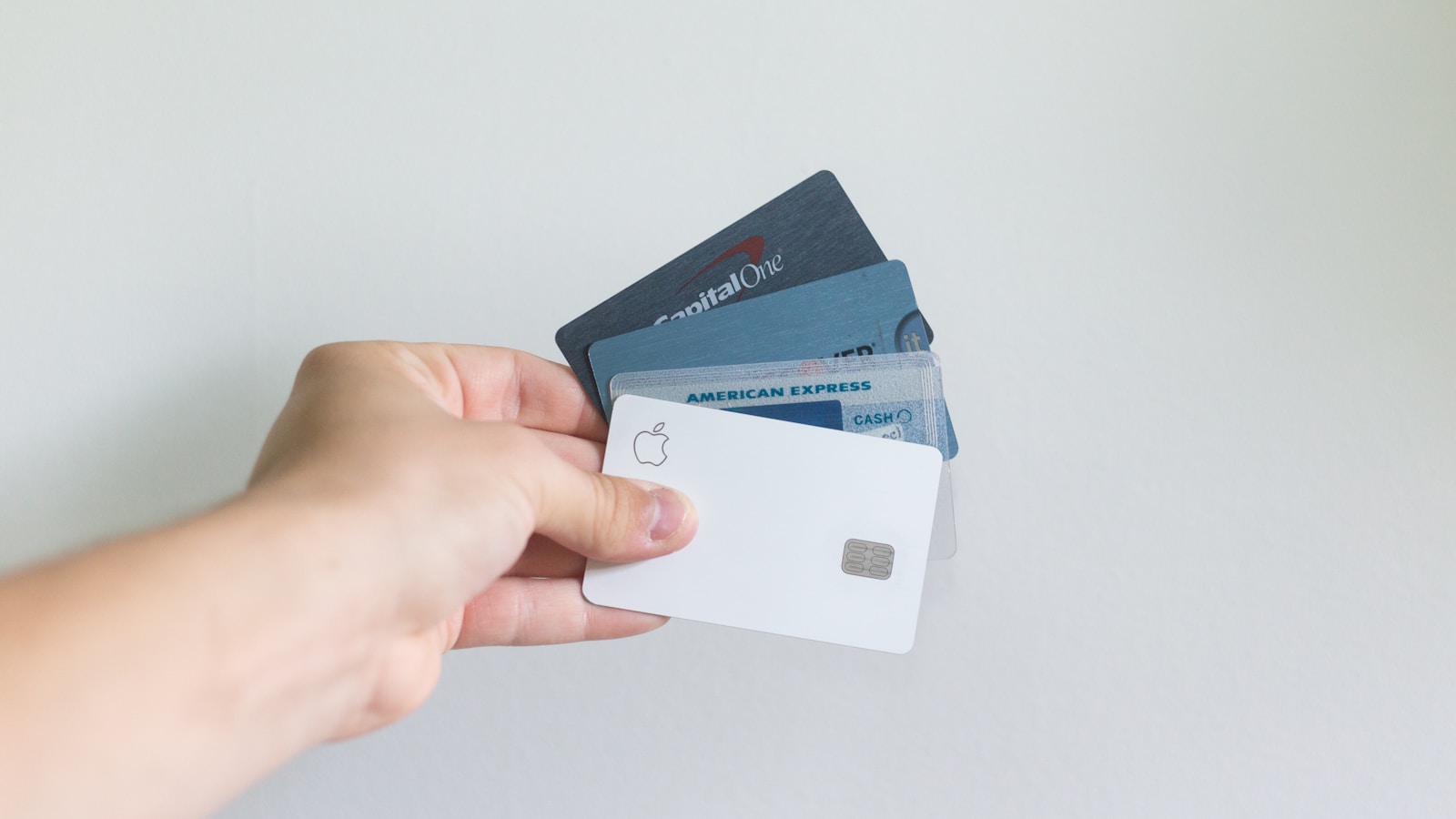Secured credit cards can play a significant role in credit repair. For individuals with low credit scores or no credit history, these cards offer a way to build or rebuild credit.
This guide will explain how secured credit cards work, why they are valuable for credit repair, and provide tips on using them effectively. By understanding these aspects, you can make informed decisions to improve your financial future.
What Is a Secured Credit Card?
A secured credit card is similar to a regular credit card. However, there is one key difference: you must provide a security deposit as collateral. This deposit reduces the risk for the credit card issuer, making it easier for them to offer a card to those with poor or no credit history.
Typically, your credit limit equals the amount of your security deposit. For example, if you deposit $500, your credit limit will likely be $500.
How Do Secured Credit Cards Work?
Secured credit cards work like traditional credit cards. You can use them for everyday purchases, online shopping, or to pay bills. Each month, you will receive a statement showing your balance and the minimum payment due.
It is important to pay at least the minimum amount, if not the full balance, to avoid interest charges. Additionally, your payment history and credit usage are reported to the major credit bureaus, which helps build your credit score over time.

Why Choose a Secured Credit Card for Credit Repair?
Secured credit cards can be a powerful tool for credit repair. First, they offer individuals with low credit scores or no credit history a chance to prove their creditworthiness.
Unlike unsecured credit cards, which may require a higher credit score for approval, secured cards are accessible to more people because of the security deposit.
Moreover, responsible use of a secured credit card can lead to an improved credit score. As a result, you might qualify for better credit products in the future, including unsecured credit cards and loans.
Building Credit History
One of the main benefits of using a secured credit card is that it helps build credit history. Consistently paying your bills on time is a key factor in credit score improvement.
With a secured credit card, every on-time payment you make gets reported to the credit bureaus, which positively affects your credit score. Over time, a history of on-time payments will show lenders that you are a responsible borrower, thereby increasing your credit score.

How Secured Credit Cards Impact Credit Scores
Secured credit cards directly impact your credit score through payment history and credit utilization. Payment history makes up 35% of your credit score, so consistently paying your bill on time is crucial.
Furthermore, credit utilization—how much of your available credit you are using—accounts for 30% of your score.
It is advisable to keep your credit utilization below 30% to maintain a positive impact on your credit score. For example, if your credit limit is $500, try to keep your balance below $150.
Choosing the Right Secured Credit Card
When selecting a secured credit card, several factors should be considered. First, look at the required security deposit. Some cards require a minimum deposit of $200, while others might require more.
Next, compare annual fees. Some secured credit cards have no annual fee, while others do. Additionally, check the interest rate. Although you should aim to pay your balance in full each month to avoid interest, knowing the rate is still important.
Also, look for cards that offer the chance to upgrade to an unsecured card after demonstrating responsible use.
Steps to Use a Secured Credit Card Effectively
Using a secured credit card effectively can lead to successful credit repair. Here are some steps to follow:
- Make On-Time Payments: Always pay your bill on or before the due date. Late payments can hurt your credit score and result in fees.
- Keep Balances Low: Try to keep your balance below 30% of your credit limit. This shows that you are using credit responsibly.
- Avoid Applying for Multiple Cards: Each application results in a hard inquiry on your credit report, which can lower your score. Stick with one secured credit card and focus on building credit with it.
- Monitor Your Credit Score: Regularly check your credit score to track your progress. Many secured credit cards offer free credit score monitoring.
- Upgrade to an Unsecured Card: After a year or so of responsible use, contact your issuer to see if you qualify for an unsecured credit card. This upgrade can further improve your credit score and offer better terms.

Avoiding Common Mistakes with Secured Credit Cards
While secured credit cards are helpful for credit repair, some common mistakes should be avoided:
- Carrying a High Balance: Carrying a high balance relative to your credit limit can hurt your credit score. Try to pay off your balance in full each month.
- Ignoring Annual Fees: Some secured credit cards come with high annual fees. Make sure you understand all fees associated with the card before applying.
- Closing the Card Too Soon: Closing your secured credit card account too soon can shorten your credit history, which might negatively impact your score. Keep the account open, even if you upgrade to an unsecured card.
- Missing Payments: Missing a payment can significantly harm your credit score. Set up automatic payments to ensure you never miss a due date.
Transitioning from Secured to Unsecured Credit Cards
After demonstrating responsible use of a secured credit card, you may be eligible to transition to an unsecured credit card. This transition is a positive step in your credit repair journey, as it often comes with higher credit limits, better rewards, and lower interest rates.
Many credit card issuers review your account regularly and may automatically offer an upgrade. Alternatively, you can contact your issuer directly to inquire about upgrading your account.
The Role of Credit Utilization in Credit Repair
Credit utilization plays a crucial role in credit repair. Keeping your credit utilization ratio low shows that you are not overly reliant on credit, which positively impacts your score.
For example, if you have a secured credit card with a $500 limit, aim to keep your balance below $150. This low utilization rate, combined with on-time payments, will contribute to a better credit score.
The Importance of Monitoring Your Credit Report
Regularly monitoring your credit report is essential for credit repair. By keeping an eye on your credit report, you can identify any errors or fraudulent activities that might negatively impact your score.
Additionally, monitoring allows you to track your progress and see how your secured credit card usage is improving your credit. Many secured credit card issuers offer free credit score tracking tools, making it easier to stay informed.
Secured Credit Cards vs. Prepaid Cards
It’s important to note the difference between secured credit cards and prepaid cards. Secured credit cards report to the credit bureaus, which helps build your credit history.
Prepaid cards, on the other hand, do not report to the credit bureaus and therefore do not help in credit repair. While prepaid cards can help with budgeting and avoiding debt, they do not offer the same credit-building benefits as secured credit cards.
The Role of Secured Credit Cards in Financial Education
Using a secured credit card responsibly not only helps with credit repair but also serves as a valuable tool for financial education.
By managing your card wisely, you can learn important financial habits such as budgeting, tracking expenses, and understanding the impact of interest rates and fees. These skills are essential for long-term financial health and stability.

Alternatives to Secured Credit Cards for Credit Repair
While secured credit cards are a popular choice for credit repair, there are alternative options to consider. For example, credit-builder loans are designed to help individuals with low or no credit history.
These loans involve making regular payments into a savings account, which are then reported to the credit bureaus. Additionally, becoming an authorized user on someone else’s credit card can help build credit, provided the primary cardholder uses the card responsibly.
The Importance of Setting Credit Goals
Setting clear credit goals is essential when using a secured credit card for credit repair. These goals might include achieving a specific credit score, transitioning to an unsecured credit card, or being approved for a loan.
By setting realistic and measurable goals, you can stay motivated and track your progress. Write down your goals and review them regularly to stay focused on your credit repair journey.
How Our Team Came Up with These Ideas
Drawing from personal experiences and real-world challenges, we recognized how secured credit cards can play a vital role in credit repair. In fact, we’ve witnessed how individuals facing financial struggles found these tools invaluable in rebuilding their credit scores.
After conducting extensive research and consulting with financial experts, we gathered insights that paved the way for this guide.
Additionally, by talking to those who successfully used secured credit cards to improve their credit, we gained practical knowledge to share. Moreover, our goal is to empower you with the right information, ensuring you make informed decisions.
Ultimately, with the right strategies and a clear understanding, you can use secured credit cards to rebuild your financial health and achieve your credit goals.
Conclusion
Secured credit cards can be a powerful tool for credit repair. They offer a pathway to building or rebuilding credit, especially for those with low credit scores or no credit history.
By using a secured credit card responsibly, you can improve your credit score, qualify for better financial products, and achieve greater financial stability.
Remember to make on-time payments, keep your balances low, and monitor your credit report regularly. With the right approach, secured credit cards can play a crucial role in your credit repair journey.


Leave a Reply